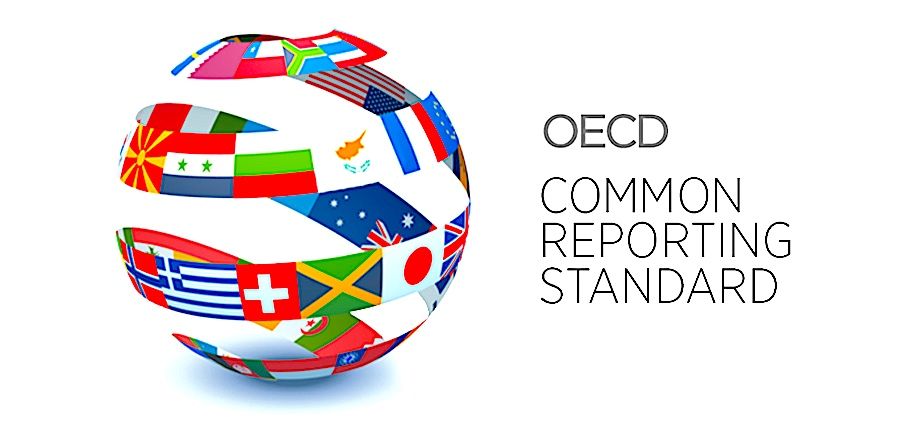
Offshore Assets
The common reporting standard is a new global standard on the automatic exchange of financial account information between countries which is designed to increase tax transparency and combat tax evasion.
Since 2016, HMRC has been receiving information about individual’s bank accounts, trusts, properties and investments held overseas.
There are now more than 100 jurisdictions worldwide participating in this data sharing process as part of a drive for greater global tax transparency.
The information provided gives HMRC unprecedented levels of transparency which will assist identifying if the correct amount of tax has been paid in the UK.
Key aspects of CRS:
- 100 countries will automatically share information obtained from financial institutions for non-resident beneficiaries.
- This information will be shared by UK institutions annually and similarly it will receive financial information in relation to offshore bank accounts and other financial assets owned by UK resident individuals.
- Unlike previous exchanges of information (which were infrequent and made on a request basis), sharing of information under the CRS will be automatic.
- Persons with unreported income or undisclosed offshore bank accounts (or other investments) face significant penalties (including prosecution) because of the information that will become available. These persons can minimise their exposure by making a pre-emptive submission to HMRC.
HOW DOES IT WORK
To prevent circumventing the CRS it is designed with a broad scope across three dimensions as follows:-
- The financial information to be reported with respect to reportable accounts includes all types of investment income (including interest, dividends, income from certain insurance contracts and other similar types of income) but also account balances and sales proceeds from financial assets.
- The financial institutions that are required to report under the CRS, not only include banks and custodians but also other financial institutions such as brokers, certain collective investment vehicles and certain insurance companies.
- Reportable accounts include accounts held by individuals and entities (which includes trusts and foundations), and the standard includes a requirement to look through passive entities to report on the individuals that ultimately control these entities.
Over 100 jurisdictions (including all jurisdictions in the EU and nearly all other major jurisdictions) have signed agreements to implement CRS into domestic legislation.
Countries operating CRS include:
Since 2016:
Anguilla, Argentina, Barbados, Belgium, Bermuda, British Virgin Islands, Bulgaria, Cayman Islands, Colombia, Croatia, Curaçao, Cyprus, Czech Republic, Denmark, Dominica, Estonia, Faroe Islands, Finland, France, Germany, Gibraltar, Greece, Greenland, Guernsey, Hungary, Iceland, India, Ireland, Isle of Man, Italy, Jersey, Korea, Latvia, Liechtenstein, Lithuania, Luxembourg, Malta, Mexico, Montserrat, Netherlands, Niue, Norway, Poland, Portugal, Romania, San Marino, Seychelles, Slovak Republic, Slovenia, South Africa, Spain, Sweden, Trinidad and Tobago, Turks and Caicos Islands, United Kingdom
Since 2017:
Albania, Andorra, Antigua and Barbuda, Aruba, Australia, Austria, The Bahamas, Belize, Brazil, Brunei Darussalam, Canada, Chile, China, Cook Islands, Costa Rica, Ghana, Grenada, Hong Kong (China), Indonesia, Israel, Japan, Kuwait, Marshall Islands, Macao (China), Malaysia, Mauritius, Monaco, Nauru, New Zealand, Qatar, Russia, Saint Kitts and Nevis, Samoa, Saint Lucia, Saint Vincent and the Grenadines, Saudi Arabia, Singapore, Sint Maarten, Switzerland, Turkey, United Arab Emirates, Uruguay, Vanuatu
WHAT ACTION SHOULD YOU TAKE
Individuals with undeclared income or holding undeclared offshore bank accounts should regularise their affairs with HMRC as soon as possible.
In many cases the mere disclosure of non-UK bank accounts will not give rise to tax issues. Individuals with undeclared income may be exposed to interest, penalties and in some cases prosecution for tax fraud.
These individuals can significantly reduce exposure to these risks by making an unprompted voluntary disclosure.
Contact us at your earliest convenience to discuss.


















